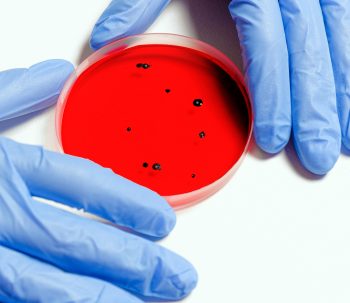Coronavirus: Is Japan Safe? Posted by Philip Gregory on Mar 9, 2020 in Uncategorized
Coronavirus (コロナウイルス) fears are sweeping across the world and there is a lot of information (情報) – and misinformation (誤報) – concerning the virus, and how to respond.
Recently, there has been a shortage of (不足) masks and toilet paper, as panicked people continue to stockpile items. Though the fear of infection (感染) is understandable, many of the responses to the possible pandemic border on paranoia (被害妄想). On the other end of the spectrum, many believe that the Coronavirus is no more dangerous than influenza (インフルエンザ). As is often the case, the truth (真実) lies somewhere in the middle of the two extremes.
First, let’s talk about the numbers. Though Japan is clearly at risk because of its proximity to China (中国), the numbers of confirmed COVID-19 cases are actually quite low (低い). According to the World Health Organization, Japan has 254 confirmed cases, and 6 confirmed deaths (死). Though those numbers are a bit disheartening, we need to keep in mind that the countries (国) who are the most affected at this time have numbers much higher. The Republic of Korea (韓国), for example, has 4212 confirmed cases, with 22 total deaths. Italy (イタリア) has 1689 confirmed cases and 35 total deaths. China, the source of the virus, is now up to 80174 confirmed cases, and 2915 deaths. Compared to other surrounding countries, Japan is doing fairly well, despite less-than-adequate efforts (努力) to contain the virus. That isn’t to say that COVID-19 is a hoax, as Donald Drumpf has implied; it is still a deadly virus and a potential pandemic. Nevertheless (それにもかかわらず), extreme responses from Japanese citizens are mostly unwarranted, at this time.
Mostly in response to misinformation spread on social media (ソーシャルメディア), (Twitter, I’m looking at you) Japanese citizens (市民) all over Japan have taken to buying out all of the masks, toilet paper, and tissue paper from the local stores. This is misguided, for two reasons (理由): first, a common mask like those sold at the local supermarket does little to prevent infection, and second, the virus does not warrant a self-quarantine response, at least not yet. As mentioned above, Japan, though at risk, is still fairly “safe” (安全), compared to other Asian countries. Cities like Tokyo (東京) could be riskier because of international airports (国際空港), public transportation (公共交通機関), and a general truck-load of people, but in the more rural (地方) areas of Japan, the likelihood of being infected is still very low. As for masks, most masks do not filter out the coronavirus, so despite a person’s stockpile of regular masks, their chance of infection will not change. In fact, some scientists have said that wearing the wrong kind of mask can actually increase your chance of infection since liquid coronavirus particles on the mask could be carried home with you. So, then, how do people living in Japan protect (守る) themselves?
The best way to prevent infection and the spread of COVID-19 is to do the same things you would normally do to prevent infection of any virus: wash your hands thoroughly, avoid infected people and confined spaces with those that might be infected, ask those that are sick to stay home from work, and so on. As for masks, it is not impossible (不可能) to filter out COVID-19, but you need the right kind of mask. Special masks that bear the N95 designation are able to successfully prevent infection. These masks filter out 95% of the particles (粒子) that you might breathe, including the tiny particles that carry the virus. Unfortunately, opportunists have been jacking up the prices of such items, and corporations have done little to enforce fair pricing. That being said, if you can get your hands on a legitimate N95 mask that is designed to last for 3-4 days, you should be safe traveling anywhere in Asia, as long as you avoid the hotspots mentioned previously.
During any potential pandemic scare, people tend to overreact (過剰反応). Although there is a legitimate concern, and although COVID-19 is a deadly virus with a higher risk than the flu, Japan, for now, is relatively safe. The situation is always changing though, and it’s a good idea to keep up to date with news about the virus. You can do that by visiting the World Health Organization’s websites, as they post situation reports drawn from real data. Get yourself an N95 mask if you can find one, avoid infected areas and people, wash (洗う) your hands (手) liberally, and stay safe. But maybe don’t buy out all of the toilet paper in your local supermarket.

Build vocabulary, practice pronunciation, and more with Transparent Language Online. Available anytime, anywhere, on any device.




